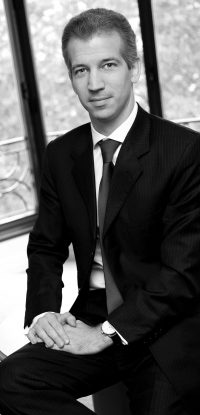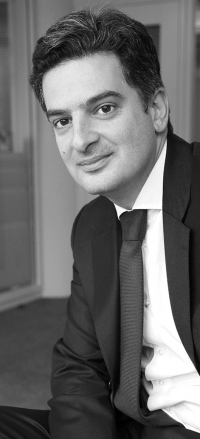The year 2020 – as seen by Investment Bankers Deutsche Bank
The year 2020 was marked by different phases, which shaped our activity. After a very active start to the year, the global shock of the coronavirus, and its dramatic human, social and economic consequences, have led to a major upheaval in the market. The strong and immediate reaction of the States, the mobilization of central banks, and the intervention of banks – among which Deutsche Bank, have made it possible to cushion the first economic and financial effects of the crisis. For our part, we were able to respond to French customers’ requests by participating in the provision of large government-backed loans or other financing facilities related to Covid-19.
The digitisation of processes has made it possible to overcome the constraints of remote working. While at the start of the crisis certain transactions were halted, the most advanced discussions were able to materialize during the lockdown, such as the sale of Leader Price stores to Aldi on March 20.
French groups have also been able to continue their development (particularly overseas) or on the contrary their program of disposals, like Arkema which sold both its Polyolefins activity to the Korean SK GF and PMMA to Trinseo - two transactions which involved teams from Deutsche Bank.
Every crisis is a source of opportunity. This will naturally be the case in the sectors which emerge strengthened from this period and which enjoy high valuations (health, technology, digital), but also for companies which have suffered more and which will have to act to bounce back as soon as the situation improves.
The conditions for a rebound in M&A activity are therefore met. First, boards can look to 2021 with some optimism, thanks to the hopes raised by the vaccines. In addition, the environment remains constructive, in particular with still very favourable financing conditions. Private equity funds seem particularly well positioned to take advantage of this new dynamic. External factors, linked to geopolitics and protectionism, will require careful consideration, but do not appear to be able to disrupt the M&A market in the coming months.
Four years after the success of Mediawan, the Paris financial market welcomed a second SPAC (Special Purpose Acquisition Company). Supported by a trio of founders with exceptional backgrounds, 2MX Organic was the largest IPO of the year in France. The company is intended to make acquisitions in the production and distribution of sustainable consumer goods. Already global coordinator of Mediawan’s IPO, Deutsche Bank led the IPO of 2MX Organic as the sole “GloCo”.
This new success confirms Deutsche Bank’s leadership in IPOs, after having managed 18 of the last 23 IPOs of French companies with more than EUR 250m in market capitalization since 2013.
2MX Organic is spearheading the development of SPACs in Europe, after a record year in the United States. These vehicles will contribute to the dynamism of M&A activity, alongside private equity funds and strategic buyers. We have just had a first example in Europe with the sale by Engie of EVBox to SPAC TPG Pace Beneficial Finance. Already at the origin of the listing of the SPAC, Deutsche Bank was also advising on this acquisition.
Finally, at Deutsche Bank, we are convinced that ESG is not a passing trend, and that environmental, social and governance factors will be even more central to investors’ concerns in the months and years to come. This will be an essential element to be integrated into the strategy and long-term outlook, in all sectors.


